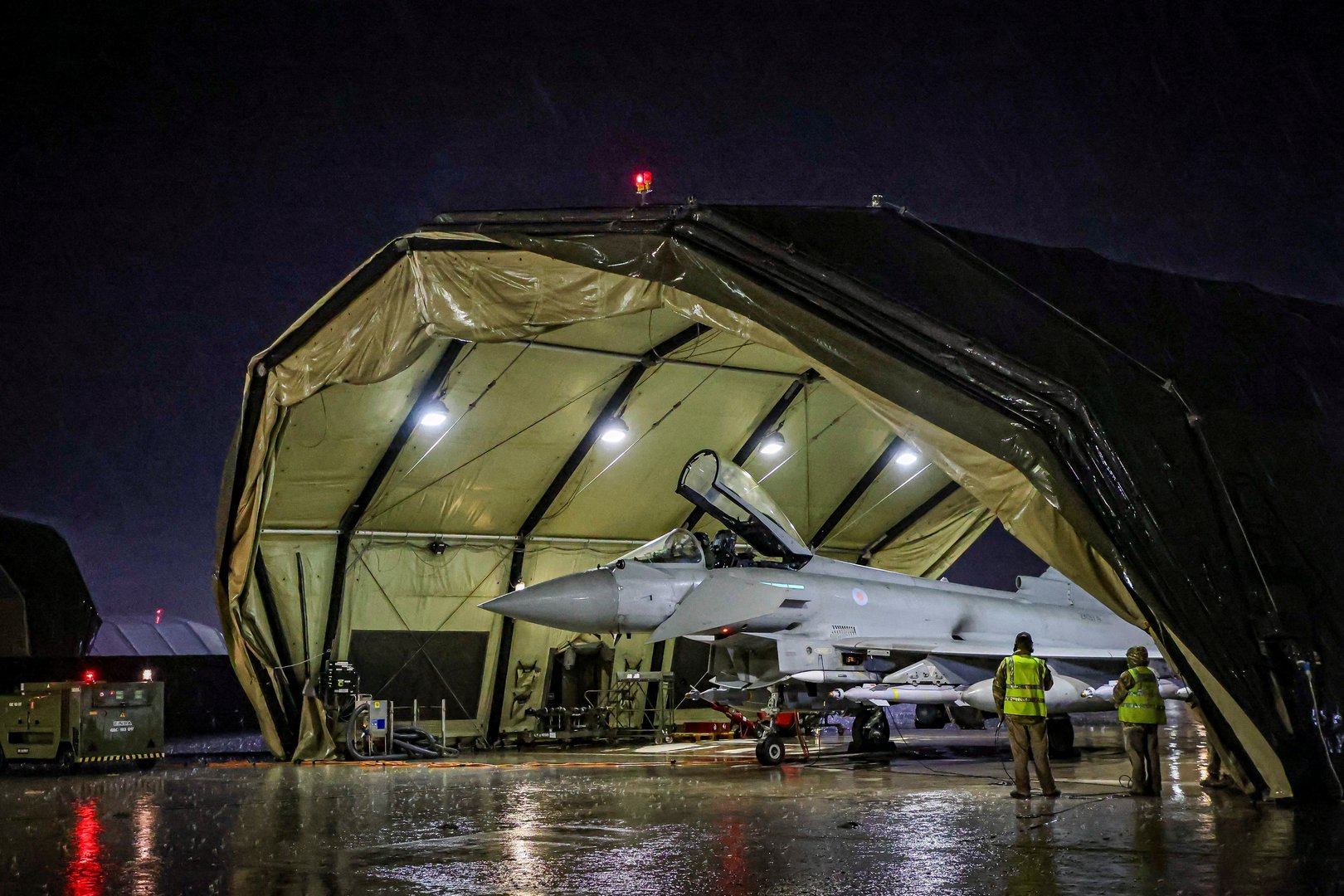New British and US airstrikes targeted a Houthi underground storage site as well as missile and surveillance capabilities, with Akrotiri base in Cyprus the launchpad for the British aircraft.
In statements by the US Pentagon, confirmed on Monday by the British ministry of defence, it was reported that British Typhoon FGR4 aircraft used Paveway IV precision guided missiles for the latest mission, as in the first attacks on January 11. They were again escorted by two Voyager-type aerial refuelling craft.
The statements do not mention the base of the British aircraft, but it is known these aircraft are located at the Akrotiri base. Sky News confirmed Akrotiri bases was used.
Cyprus ministry of defence spokesman Andreas Stylianou told the Cyprus Mail on Tuesday morning that the ministry was not in a position to know or comment on these attacks.
“We do not comment on Akrotiri, the task is up to the presidency and statements by the office of the president,” Stylianou said.
RAF Akrotiri was likewise not immediately available for comment.
According to official reports by US and British sources, the missiles hit multiple targets at two military sites near a military airport in the Yemeni capital, Sanaa.
“These sites were being used to enable continued intolerable attacks against international shipping in the Red Sea,” the UK ministry of defence stated late on Monday.
The statement added that prior to the new attacks, thorough analysis and planning was conducted to minimise the risk of civilian casualties, and for this reason the strikes were carried out at night.
Speaking on Tuesday morning, UK Foreign Secretary David Cameron said “last night four RAF typhoons took part in military action together with the Americans to further degrade the Houthi capacity to carry out these attacks on shipping in the Red Sea.
“What the Houthis are doing is unacceptable, it’s illegal, and it’s threatening the freedom of navigation. That’s why we’ve taken the action,” he said.
“Since we last took action ten days ago, there have been over 12 attacks on shipping by the Houthis in the Red Sea. These attacks are illegal, they are unacceptable, and what we’ve done again is send the clearest possible message that we will continue to degrade their ability to carry out these attacks whilst sending the clearest possible message that we back our words and our warning with action,” he said.
In a separate statement, UK Defence Secretary Grant Shapps added that the joint strikes with the US were acts of self-defence carried out because the Houthi’s dangerous attacks in the Red Sea threaten the lives of sailors and disrupt shipping “at an intolerable cost to the global economy”.
He also said the strikes targeted the Houthis’ already limited arsenal and their ability to threaten global trade.
The attacks were later confirmed in a joint statement by the US, the UK, Australia, Bahrain, Canada and the Netherlands.
Shortly before the initial US announcement of the new attacks, Downing Street had reported on an evening telephone conversation between Prime Minister Rishi Sunak and President Joe Biden.
The two leaders were said to have “condemned the increase in violent Houthi attacks on commercial ships transiting the (Red Sea) region” and to have pledged “to continue efforts together with international partners to prevent and hinder these attacks”.
According to the British Prime Minister’s office, Sunak and Biden said preventing such attacks could be done by putting diplomatic pressure on Iran to stop supporting Houthi activity and through targeted military action to degrade Houthi capabilities if needed.
The UK involvement on Monday appears to have been smaller than 11 January’s strikes. Ten days ago, US and UK warships and jets hit more than 60 targets in 28 locations.
On January 15 hundreds of protesters gathered at Akrotiri base against the use of the bases for military operations in the middle east, specifically in aiding Israeli surveillance operations. The Cyprus Peace Council charged that British and US spy planes were operating out of Akrotiri base.
The Cyprus government’s official position has been to stick to the line that Cyprus is “not involved” in any way in these military operations.






Click here to change your cookie preferences